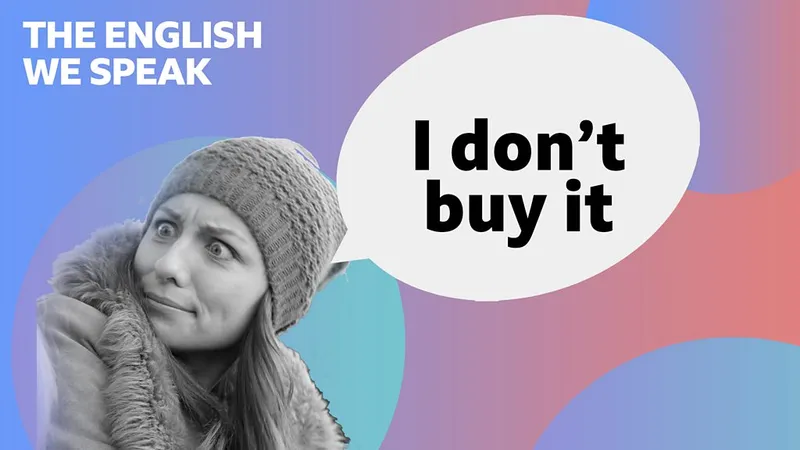Phil Welcome to The English We Speak, with me Phil…
Feifei And me, Feifei.
Phil We have an expression that you can use if you just don’t believe someone – it’s ‘I don’t buy it’.
Feifei ‘I don’t buy it’. Tell us a bit more – it’s not connected to shopping, is it?
Phil No, it’s not connected to shopping. Beth told me she can juggle with five balls – and I just don’t buy it – I’ve never seen her practising. It can’t be true!
Feifei And you told me you can play me the trumpet, but I’ve never seen or heard you do it – I don’t buy it.
Phil Did I really say that? I’d forgotten. I said the same thing to my brother and he definitely didn’t buy it – he knows I have no musical talent at all.
Feifei Clearly. Let’s listen to these examples.
Examples You’re saying it was an accident? Sorry, I don’t buy it.
She said her broken computer stopped her doing the assignment, but her tutor just didn’t buy it.
He said he was working late, but I don’t buy that story!
Feifei You’re listening to The English We Speak from BBC Learning English, and we’re learning the expression ‘I don’t buy it’. We use it to say that we don’t believe something.
Phil It’s quite informal but you’ll hear it a lot in speech.
Feifei Yes. We can also use it to talk about buying someone’s story or explanation – if you buy a story – you believe it.
Phil But, as in the examples, it’s much more common to use it in the negative and say that you don’t buy something. Feifei, I did explain why I didn’t get you a birthday present, didn’t I?
Feifei You did, but I don’t buy that story. I’ll give you until tomorrow to find something! See you then.
Phil Bye!
